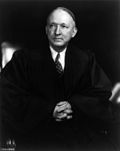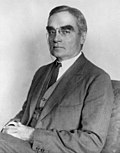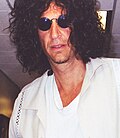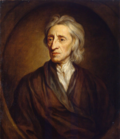Usage
The layout design for these subpages is at Portal:Freedom of speech/Selected biography/Layout.
- Add a new Selected article to the next available subpage.
- The list should only contain articles that have been given a quality rating of
B-class or higher
.
- All blurbs should have an accompanying free-use image that is relevant to the selected article.
- The "blurb" for all selected articles should be approximately 10 lines, for appropriate formatting in the portal main page.
- Update "max=" to new total for its {{Random portal component}} on the main page.
Selected biographies list
Portal:Freedom of speech/Selected biography/1
Beslan, but survived and continued her reporting. She authored several books about Chechen wars and
Putin's Russia
Portal:Freedom of speech/Selected biography/2
Article 301
became increasingly vocal after his death, leading to parliamentary proposals for repeal.
Portal:Freedom of speech/Selected biography/3

Louis Dembitz Brandeis (1856 – 1941) was an
Associate Justice on the
Supreme Court of the United States from 1916 to 1939. He was born in
Louisville,
Kentucky, to Jewish immigrant parents who raised him in a
secular mode. He enrolled at
Harvard Law School, graduating at the age of twenty with the highest grade average in the college’s history. In 1916, President
Woodrow Wilson nominated Brandeis to become a member of the U.S. Supreme Court. However, his nomination was bitterly contested, partly because, as
Justice William O. Douglas wrote, "Brandeis was a militant crusader for social justice whoever his opponent might be. He was dangerous not only because of his brilliance, his arithmetic, his courage. He was dangerous because he was incorruptible. . . [and] the fears of the Establishment were greater because Brandeis was the first Jew to be named to the Court." He was eventually confirmed by the Senate by a vote of 47 to 22 on June 1, 1916, and became one of the most famous and influential figures ever to serve on the high court. His opinions were, according to legal scholars, some of the “greatest defenses” of
freedom of speech and the
right to privacy
Portal:Freedom of speech/Selected biography/4
liberal policies and civil liberties. However, Black consistently opposed the doctrine of
substantive due process (the anti-
New Deal Supreme Court cited this concept in such a way as to make it impossible for the government to enact legislation that interfered with the freedom of business owners) and believed that there was no basis in the words of the Constitution for a
right to privacy, voting against finding one in
Griswold v. Connecticut
Portal:Freedom of speech/Selected biography/5
Dwight Eisenhower nominated Harlan to the United States Supreme Court following the death of Justice
Robert H. Jackson. Harlan is often characterized as a member of the conservative wing of the
Warren Court. Justice Harlan was gravely ill when he retired from the Supreme Court on September 23, 1971. He died from spinal cancer three months later, on December 29, 1971. After Harlan's retirement,
President Nixon appointed
William Rehnquist
Portal:Freedom of speech/Selected biography/6
Progressive Party's candidate for
Chief Judge of the
New York Court of Appeals in 1913, but withdrew from active politics shortly afterwards. In 1924, President
Calvin Coolidge promoted Hand to the Court of Appeals for the Second Circuit, which he went on to lead as the Senior Circuit Judge (later retitled
Chief Judge
Portal:Freedom of speech/Selected biography/7

Ştefan Luchian,
Constantin Artachino and
Nicolae Vermont. In addition to his literary and political activities, Alexandru Bogdan-Piteşti was himself a painter and graphic artist. Much of Bogdan-Piteşti's controversial political career, inaugurated by his support for
anarchism, was dedicated to activism and support for revolution, while he showed an interest in the
occult and maintained close contacts with
Joséphin "Sâr" Péladan—whose 1898 visit to
Bucharest he sponsored. He was detained by the authorities at various intervals, including an arrest for
sedition during the
1899 election, and was later found guilty of having
blackmailed the banker
Aristide Blank. Late in his life, he led
Seara, a
Germanophile daily, as well as a literary and political circle which came to oppose Romania's entry into
World War I on the
Entente Powers
Portal:Freedom of speech/Selected biography/8
.
As Chief Justice, Coke restricted the use of the Chief Justiceship of the King's Bench, where it was felt he could do less damage. Coke then successively restricted the definition of treason and declared a royal letter illegal, leading to his dismissal from the bench on 14 November 1616. With no chance of regaining his judicial posts, he instead returned to Parliament, where he swiftly became a leading member of the opposition. During his time as an MP he wrote and campaigned for the
Statute of Monopolies, which substantially restricted the ability of the monarch to grant patents, and authored and was instrumental in the passage of the
Petition of Right, a document considered one of the three crucial constitutional documents of England, along with the
Magna Carta and the
Bill of Rights 1689. With the passage of the Petition of Right in 1628, Coke retired to his estates, where he revised and finished his
Reports and the
Institutes of the Lawes of England
Coke is best known in modern times for his Institutes, described by
United States Constitution while necessitating the
Sixteenth.
Portal:Freedom of speech/Selected biography/9
staff that earned $41.2 million in domestic revenue. Stern performs on its
soundtrack which topped the
Billboard 200
Portal:Freedom of speech/Selected biography/10
publisher and the president of
Larry Flynt Publications (LFP). In 2003,
Arena magazine listed him as the number one on the "50 Powerful People in Porn" list. LFP mainly produces sexually graphic videos and magazines, most notably
Hustler. Flynt has fought several prominent legal battles involving the
First Amendment, and has unsuccessfully run for public office. He is paralyzed from the waist down due to injuries sustained in a
1978 assassination attempt. In 1988, Flynt won an important Supreme Court decision,
Hustler Magazine v. Falwell, after being sued by Reverend
Jerry Falwell
Portal:Freedom of speech/Selected biography/11
Berkman Center for Internet and Society
that develops classroom tools.
Portal:Freedom of speech/Selected biography/12
.
Portal:Freedom of speech/Selected biography/13
.
Portal:Freedom of speech/Selected biography/14
. In court at his trial, van der Graaf said he murdered Fortuyn to stop him from exploiting Muslims as "scapegoats" and targeting "the weak members of society" in seeking political power.
Portal:Freedom of speech/Selected biography/15
.
Portal:Freedom of speech/Selected biography/16
inciting to riot as a result of his role in
protests that led to violent confrontations with
police during the
1968 Democratic National Convention, along with
Jerry Rubin,
David Dellinger,
Tom Hayden,
Rennie Davis,
John Froines,
Lee Weiner and
Bobby Seale. The group was known collectively as the "Chicago Eight"; when Seale's prosecution was separated from the others, they became known as the
Chicago Seven. While the defendants were initially convicted of intent to incite a riot, the verdicts were overturned on appeal. Hoffman came to prominence in the 1960s, and continued practicing his activism in the 1970s, and has remained a symbol of the
youth rebellion
Portal:Freedom of speech/Selected biography/17
" anti-war activists.
Portal:Freedom of speech/Selected biography/18

David Herbert Richards Lawrence (11 September 1885 – 2 March 1930) was an English novelist, poet, playwright, essayist, literary critic and painter who published as D. H. Lawrence. His collected works represent an extended reflection upon the dehumanising effects of modernity and industrialisation. In them, Lawrence confronts issues relating to emotional health and vitality, spontaneity, and instinct. Lawrence's opinions earned him many enemies and he endured official persecution, censorship, and misrepresentation of his creative work throughout the second half of his life, much of which he spent in a voluntary exile he called his "savage pilgrimage." At the time of his death, his public reputation was that of a pornographer who had wasted his considerable talents. E. M. Forster, in an obituary notice, challenged this widely held view, describing him as, "The greatest imaginative novelist of our generation." Later, the influential Cambridge critic F. R. Leavis championed both his artistic integrity and his moral seriousness, placing much of Lawrence's fiction within the canonical "great tradition" of the English novel. Lawrence is now valued by many as a visionary thinker and significant representative of modernism in English literature.
Portal:Freedom of speech/Selected biography/19
Planned Parenthood Federation of America. In New York, Sanger organized the first birth control clinic staffed by all-female doctors, as well as a clinic in
Harlem with an entirely African-American staff. In 1929, she formed the National Committee on Federal Legislation for Birth Control, which served as the focal point of her lobbying efforts to legalize contraception in the United States. From 1952 to 1959, Sanger served as president of the
International Planned Parenthood Federation
Portal:Freedom of speech/Selected biography/20
.
Portal:Freedom of speech/Selected biography/21
confidential library databases, Krug raised public outcry against this activity by the government. In 2003, she was the leader of the initiative to challenge the constitutionality of the
Children's Internet Protection Act. Her efforts led to a partial victory; the
Supreme Court of the United States ruled that the law was constitutional, however computers at the library could have filtering software turned off if requested to do so by an adult guardian. Krug warned that the same filters used to censor
Internet pornography
Portal:Freedom of speech/Selected biography/22
Mauro De Mauro (born September 6, 1921 – disappeared September 16, 1970) was an Italian journalist. He disappeared in September 1970 and his body has not yet been found. His disappearance and probable death remains one of the unsolved mysteries in Italian history. Several explanations for his disappearance are current. One is related to the death of the president of Italy's state-owned oil and gas conglomerate ENI, Enrico Mattei. Another is that De Mauro had discovered drug trafficking between Sicily and the United States. A third explanation links his disappearance with the Golpe Borghese a planned right-wing coup d'état (the plan failed in December 1970). Apparently De Mauro was convinced that he had got hold of a story of a lifetime. Before his disappearance he told colleagues at the newspaper L'Ora, "I have a scoop that is going to shake Italy."
Portal:Freedom of speech/Selected biography/23
.
Portal:Freedom of speech/Selected biography/24
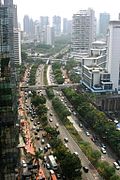
Erwin Arnada (born 17 October 1963) is an Indonesian journalist and filmmaker. Born to a devout Muslim family in Jakarta, Arnada became interested in journalism in 1984, and, after a time as a photographer, he interned at the weekly Editor. Beginning in 1990 he took editorial roles in various print media, including the controversial tabloid Monitor. Arnada entered cinema in 2000, producing several films for Rexinema. After establishing Playboy Indonesia in 2006 Arnada became the center of controversy, as Islamic groups such as the Islamic Defenders Front protested the magazine as indecent – despite it not featuring any nudity. After an extended series of trials Arnada was convicted by the Supreme Court of Indonesia and sentenced to two years in prison, beginning in October 2010. He was released the following June, when the court reversed its decision. In 2012 Arnada was nominated for a Citra Award for Best Director for his film Rumah di Seribu Ombak, based on a novel he had written in prison.
Portal:Freedom of speech/Selected biography/25
Wall Street Journal
. For his active role in city politics, Paul was nicknamed "the father of Metro".
Portal:Freedom of speech/Selected biography/26
. On 22 July 2012, he died in a car crash under controversial circumstances. The Cuban government stated that the driver had lost control of the vehicle and collided with a tree, while Payá's children and one of the car's passengers asserted that the car had been deliberately run off of the road.
Portal:Freedom of speech/Selected biography/27
dual citizenship. He is the owner and director of
Phnom Penh's
Beehive Radio, which the
Committee to Protect Journalists (CPJ) described in 2012 as "one of Cambodia's few independent news outlets". He also acts as a political commentator for the station. Sonando has been imprisoned three times on charges related to his reporting: a 2003 arrest for "inciting riots", a 2005 arrest for defamation, and a 2012 arrest for insurrection. His twenty-year prison sentence for the latter was protested by human rights groups, and US President
Barack Obama expressed concerns about the case in a meeting with Prime Minister
Hun Sen
Portal:Freedom of speech/Selected biography/28

Palestinian activist and an organizer of protests against
Israeli settlement construction in the
West Bank. He was convicted by an Israeli military court in 2011 for "sending people to throw stones, and holding a march without a permit". A schoolteacher in
Nabi Salih in the
West Bank, al-Tamimi organizes weekly demonstrations against Israeli settlement. He has been arrested by the Israeli authorities over a dozen times, at one point spending more than three years in
administrative detention without trial. Al-Tamimi advocates grassroots,
nonviolent resistance, but has stated his belief that stone-throwing is an important symbol of Palestinian resistance to Israeli occupation. His 2011 arrest drew international attention, with the
European Union describing him as a "human rights defender" and
Amnesty International designating him a
prisoner of conscience
Portal:Freedom of speech/Selected biography/29
constitutional interpretation. He was a strong defender of the powers of the
executive branch, believing presidential power should be paramount in many areas. He opposed
affirmative action and other policies that treat minorities as groups. He filed separate opinions in large numbers of cases, and, in his minority opinions, often castigated the Court's majority in scathing language. (
more...
Portal:Freedom of speech/Selected biography/30
Dutch House of Representatives. In the
formation in 2010 of the
Rutte cabinet, a
minority cabinet of VVD and CDA, he actively participated in the negotiations, resulting in a "support agreement" (
gedoogakkoord) between the PVV and these parties, but withdrew his support in April 2012, citing disagreements with the cabinet on proposed budget cuts. Wilders is best known for his
criticism of Islam. Wilders' views regarding Islam have made him a controversial figure in the Netherlands and abroad, and since 2004 he receives permanent personal protection by armed bodyguards.(
more...
Nominations
- Adding articles
- Feel free to add
WP:GA
articles to the above list. Other Freedom of speech-related biography articles may be nominated here.
- If you are unsure or do not know how to add an entry, feel free to post a question, suggestion or nomination here below, or at the talk page Portal talk:Freedom of speech.




